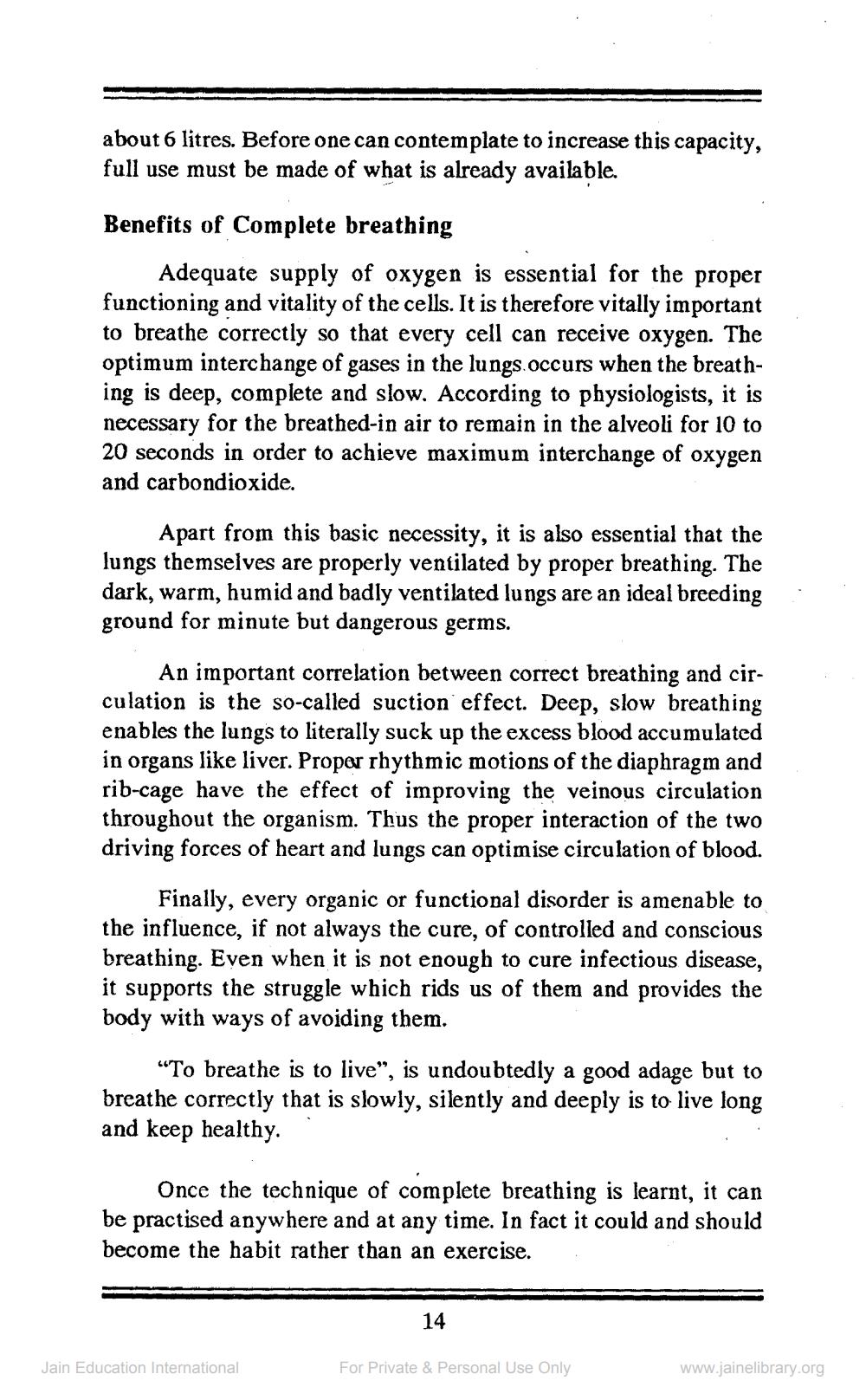________________
about 6 litres. Before one can contemplate to increase this capacity, full use must be made of what is already available.
Benefits of Complete breathing
Adequate supply of oxygen is essential for the proper functioning and vitality of the cells. It is therefore vitally important to breathe correctly so that every cell can receive oxygen. The optimum interchange of gases in the lungs. occurs when the breathing is deep, complete and slow. According to physiologists, it is necessary for the breathed-in air to remain in the alveoli for 10 to 20 seconds in order to achieve maximum interchange of oxygen and carbondioxide.
Apart from this basic necessity, it is also essential that the lungs themselves are properly ventilated by proper breathing. The dark, warm, humid and badly ventilated lungs are an ideal breeding ground for minute but dangerous germs.
An important correlation between correct breathing and circulation is the so-called suction effect. Deep, slow breathing enables the lungs to literally suck up the excess blood accumulated in organs like liver. Proper rhythmic motions of the diaphragm and rib-cage have the effect of improving the veinous circulation throughout the organism. Thus the proper interaction of the two driving forces of heart and lungs can optimise circulation of blood.
Finally, every organic or functional disorder is amenable to the influence, if not always the cure, of controlled and conscious breathing. Even when it is not enough to cure infectious disease, it supports the struggle which rids us of them and provides the body with ways of avoiding them.
“To breathe is to live", is undoubtedly a good adage but to breathe correctly that is slowly, silently and deeply is to live long and keep healthy.
Once the technique of complete breathing is learnt, it can be practised anywhere and at any time. In fact it could and should become the habit rather than an exercise.
14
Jain Education International
For Private & Personal Use Only
www.jainelibrary.org




